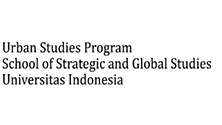Abstract
Background: Urbanization changes the demographic structure and lifestyle, and drives economic growth and the construction sector including Sindang Workers. Sindang Workers from Sindanglaut, Cirebon, play an important role in urban projects with a high work ethic. This study then links their work culture with the theory of social capital.
Aims: The study examines how social capital influences the work ethic culture of Sindang Workers through indicators of migration, work ethic culture, and work discipline.
Methods: This study uses a qualitative approach such as interviews and field observations to understand the factors driving the work ethic of Sindang Workers.
Results: The results of the study show that Sindang Workers who are motivated by a solid work system demonstrate high discipline, effective communication, and a strong work ethic. They work independently but collaboratively, ensuring productivity and work quality remain high. However, there are variations in individual motivation. This answers the theory of social capital that work ethic is a response of Sindang Workers in a cultural context to adapt to the Sindang Worker community in urban areas.
Conclusion: To improve the efficiency and welfare of Sindang Workers, it is necessary to improve work facilities, communication, and collaboration. In addition, to create an inclusive work environment without discrimination, it is necessary to ensure that all workers feel valued and have equal opportunities.
References
Bohórquez, E., Caiche, W., Benavides, V., & Benavides, A. (2022). Motivation and Job Performance: Human Capital as a Key Factor for Organizational Success (pp. 123–133). https://doi.org/10.1007/978-3-030-94262-5_12
Chairani, L. (2024). Pengaruh Urbanisasi terhadap Perubahan Struktur Ekonomi. Circle Archive: Ekonomi, 1(5).
Eurenius, A.-M. (2020). A family affair: Evidence of chain migration during the mass emigration from the county of Halland in Sweden to the United States in the 1890s. Population Studies, 74(1), 103–118. https://doi.org/10.1080/00324728.2018.1559945
Istiqomah, B. R., Anward, H. H., & Erlyani, N. (2017). PERANAN PENGUASAAN LINGKUNGAN TERHADAP MOTIVASI MIGRASI PADA PENDUDUK YANG TINGGAL DI PEMUKIMAN KUMUH. Jurnal Ecopsy, 3(3). https://doi.org/10.20527/ecopsy.v3i3.2660
Jamal Ali, B., & Anwar, G. (2021). An Empirical Study of Employees’ Motivation and its Influence Job Satisfaction. International Journal of Engineering, Business and Management, 5(2), 21–30. https://doi.org/10.22161/ijebm.5.2.3
Khan, A. N., Khan, N. A., & Soomro, M. A. (2022). The Impact of Moral Leadership on Construction Employees’ Psychological Behaviors. IEEE Transactions on Engineering Management, 69(6), 2817–2825. https://doi.org/10.1109/TEM.2020.3020371
Mardanov, I. (2021). Intrinsic and extrinsic motivation, organizational context, employee contentment, job satisfaction, performance and intention to stay. Evidence-Based HRM: A Global Forum for Empirical Scholarship, 9(3), 223–240. https://doi.org/10.1108/EBHRM-02-2020-0018
Nykänen, M., Puro, V., Tiikkaja, M., Kannisto, H., Lantto, E., Simpura, F., Uusitalo, J., Lukander, K., Räsänen, T., Heikkilä, T., & Teperi, A.-M. (2020). Implementing and evaluating novel safety training methods for construction sector workers: Results of a randomized controlled trial. Journal of Safety Research, 75, 205–221. https://doi.org/10.1016/j.jsr.2020.09.015
PANCASILA, I., HARYONO, S., & SULISTYO, B. A. (2020). Effects of Work Motivation and Leadership toward Work Satisfaction and Employee Performance: Evidence from Indonesia. The Journal of Asian Finance, Economics and Business, 7(6), 387–397. https://doi.org/10.13106/jafeb.2020.vol7.no6.387
Pirzadeh, P., & Lingard, H. (2021). Working from Home during the COVID-19 Pandemic: Health and Well-Being of Project-Based Construction Workers. Journal of Construction Engineering and Management, 147(6). https://doi.org/10.1061/(ASCE)CO.1943-7862.0002102
Purba, E. D. P. (2024). Pengaruh Urbanisasi terhadap Pola Konsumsi dan Tabungan. Circle Archive: Ekonomi, 1(5).
Ramadhani, G. D. (2018). Hubungan antara kebersyukuran dan subjective well-being pada pekerja proyek bangunan. Universitas Islam Indonesia. https://dspace.uii.ac.id/handle/123456789/6505
Recommended Citation
Adi Perdana, Kevin and Sinaga, Rinaldo Sutanto
(2024)
"Urbanization and Work Ethic Culture Case Study: Sindang Workers,"
Cities and Urban Development Journal: Vol. 2:
No.
2, Article 1.
DOI: 10.7454/cudj.v2i1.1027
Available at:
https://scholarhub.ui.ac.id/cudj/vol2/iss2/1






